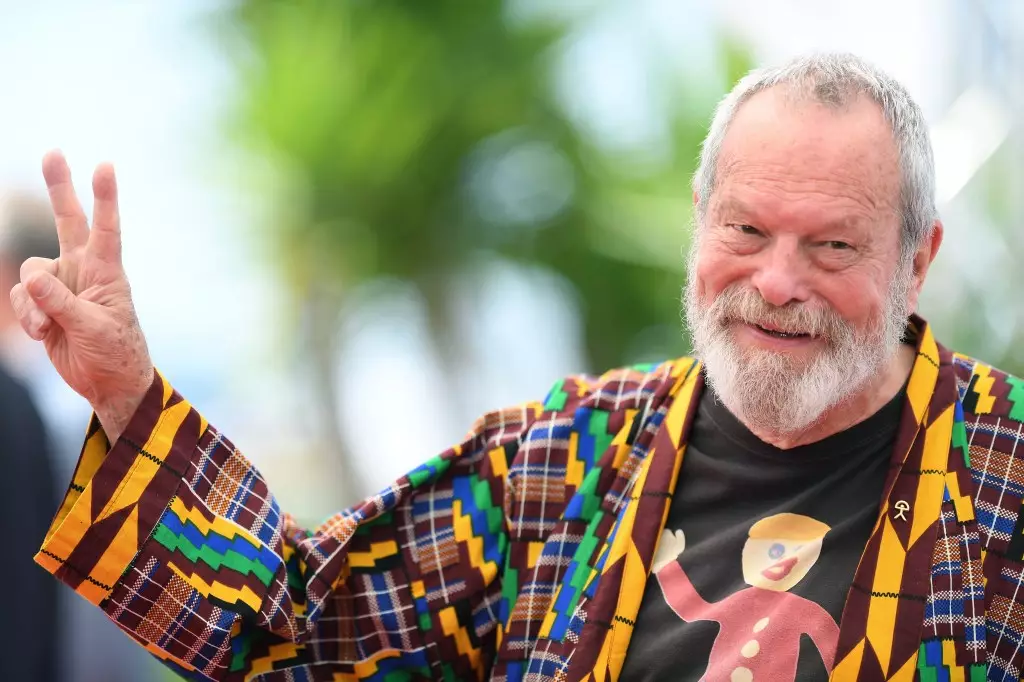Terry Gilliam, a standout figure known for his surreal and imaginative storytelling, is preparing to embark on his next grand cinematic adventure with ‘Carnival: At The End Of Days’. This project, poised to be a biblical comedy with Gilliam’s signature flair, has captured the attention of the film industry, particularly with the involvement of Andrea Iervolino, a prolific Italian producer with an impressive resume. Iervolino’s commitment to this film, alongside both directorial and creative contributions from Gilliam, promises to birth an artistic endeavor that is rich in both narrative complexity and visual innovation.
The partnership between Gilliam and Iervolino signifies a noteworthy collaboration that emphasizes the film’s extensive ambitions and unique vision. Iervolino’s track record includes noteworthy titles like ‘Ferrari’ and ‘Maserati: The Brothers’, which lends credibility to his involvement in a project of such scale. His comments on ‘Carnival’ reveal the project’s aspirations: Iervolino describes it as “an epic and visionary work,” suggesting a production that will stretch conventional boundaries through its unprecedented integration of live-action and CGI elements. This combination signifies a potentially landmark achievement in independent film, one that marries Gilliam’s creative insights with pioneering technology to create something new and compelling.
At its core, ‘Carnival: At The End Of Days’ presents a narrative that delves into themes of divine judgment and human folly, encapsulated within a comical framework. Gilliam’s unique storytelling approach has often addressed existential themes, and this film appears set to blend humor with a biting critique of humanity’s shortcomings. The plot premise—a struggle between God and Satan—positions the story at the intersection of dark comedy and philosophical inquiry. The notion that Satan may be the unlikely arch-hero, attempting to save humanity from annihilation, invites audiences to reconsider traditional narratives about good and evil.
Such an inversion of expected character roles aligns with Gilliam’s historic willingness to challenge audience perceptions, as seen in classics like ‘Brazil’ and ‘Fear and Loathing in Las Vegas’. This fresh perspective promises to interrogate not only the motivations of its characters but also the very constructs of morality itself.
Iervolino’s assertion that ‘Carnival’ will employ “an unprecedented amount of CGI” raises the stakes significantly in terms of both visual ambition and storytelling potential. This integration could redefine how independent films balance artistic expression with technological advancements. Historically, Gilliam has championed the art of practical effects, which makes this pivot to heavy CGI noteworthy. This shift could result in an eye-opening visual spectacle that accentuates the film’s narrative while expanding the boundaries of what independent filmmaking can achieve.
As the production gears up for potential filming in Italy as early as April, anticipation builds regarding the artistic choices that Gilliama and his team will implement. How they choose to harness the capabilities of CGI while maintaining the whimsical surrealism characteristic of Gilliam’s work will be crucial.
The film’s potential cast—rumored to include talents like Johnny Depp and Jeff Bridges—adds an additional layer of excitement to ‘Carnival’. Should these actors officially join, their roles would enhance the film’s exploration of dualities within its narrative, especially as Depp’s character, Satan, seeks to negotiate with God, played by Bridges. However, it is essential to approach this casting speculation with caution; until formal agreements are reached, the fandom’s excitement remains tempered with uncertainty.
As we look ahead to the production’s progress, it is worth reflecting on Gilliam’s filmography and the prolonged challenges he faced with previous projects, such as ‘The Man Who Killed Don Quixote’. The anticipation surrounding ‘Carnival’ serves as a reminder of the tenacity required in independent filmmaking.
Overall, ‘Carnival: At The End Of Days’ embodies a melding of visionary storytelling and groundbreaking technology, securing its place as one of the most intriguing projects on the horizon, and exemplifies the kind of daring creativity that Terry Gilliam has continually championed throughout his career. The film promises not only humor but profound insights into our existence and the choices that define humanity. As the future unfolds, the film industry and audiences alike eagerly await this innovative tale that paints both a vivid and complex portrait of existence, morality, and folly.

